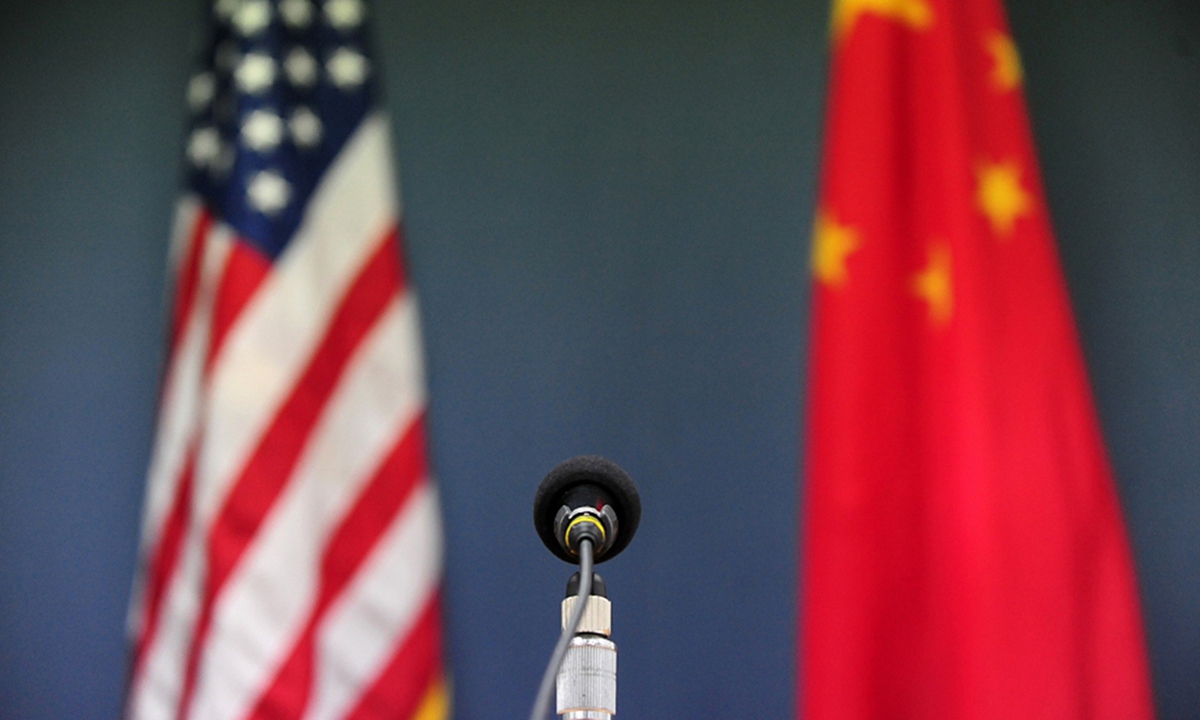
China US Photo: VCG
In an exclusive interview with US broadcaster CBS' "Face the Nation" that aired on Sunday, US Treasury Secretary Janet Yellen said that lowering the punitive tariffs imposed by former US President Donald Trump's administration on Chinese goods is "certainly something that's under consideration," while admitting that "tariffs do tend to raise domestic prices."While it is not the first time that Yellen said the US may consider reducing the bruising tariffs, her remarks on Sunday, ahead of a closely watched virtual summit between top leaders of the two countries on Tuesday, still attracted widespread attention. Observers believe that such positive signals from US officials may presage certain stabilizing trend of China-US economic and trade cooperation in the near future.
Also very important is the messy US domestic situation behind such increasingly positive remarks from US officials. The US economy is struggling with skyrocketing inflation, supply chain crisis, shortages of various goods, among other issues, and the Biden administration needs cooperation with the world's second-largest economy more than ever.
Latest US official data showed that consumer prices in the US surged 6.2 percent year-on-year in October, which is the biggest increase in 31 years and has become a prime constraint on the US economic recovery.
If the US removes tariffs on hundreds of billions of dollars of Chinese goods, it would at least have some disinflationary effect that would lower prices for US consumers and businesses. Biden's new once-in-a-generation infrastructure bill may also have the chance of becoming more cost-efficient.
Many believe that economic cooperation with China is now an inevitable choice for the US economy, given China's rapidly rising role in the global economy. In the same CBS interview, Yellen also said that an economic slowdown in China would have "global consequences." Her comment, to a certain extent, reveals how profound role of the Chinese economy in the global economy.
However, in terms negative impact on the global economy, it is the US that poses the biggest risk, not China. Despite the impact of the global pandemic, China has offered strong support to the connectivity of the global supply chains. By comparison, the US has undermined the global recovery instead of helping it.
The US' attempt to crack down on Chinese technology companies is also hurting global industries. Its unilateral sanctions are not just confined to China, but also the world. Take Japan and South Korea as an example. Due to the location proximity, the two countries have always had close supply chain cooperation with China, but the US' aggressive interference in the global semiconductor sector has also created serious challenges for a host of companies in South Korea and Japan.
The Biden administration appears to be keen to send positive signals on its trade policy toward China, but its reluctance to abandon toxic trade policies under the Trump administration has become a source of policy uncertainty that is likely to undercut a global economic recovery.
The international community is looking forward to strengthened policy coordination between China and the US to inject renewed momentum into the global recovery. It would be lamentable if the US continues to stubbornly stick to its hostile approach, which would only undermine the basis for any cooperation and create new risks for the Chinese and US economies as well as the global economy as a whole.
